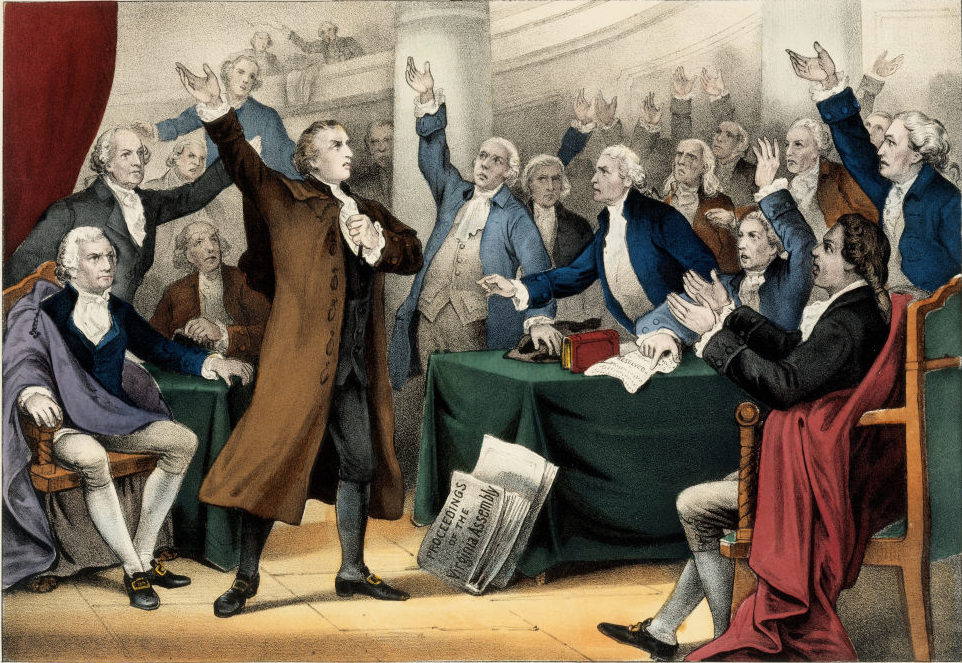The consummate statecraft of Justice Alito's leaked abortion opinion.
A Matter for Parliament

Restoring trust in America’s constitutional system will require some deference on the part of SCOTUS.
Besides a few short summer clerkships, my first period of legal practice was as a law clerk to a Supreme Court justice, although I did not call it that. In much of the U.K. and Commonwealth, the people Americans know as “law clerks” are “associates,” “judicial assistants,” “tipstaffs,” or “pupils.”
The roles are similar, however, and similarly prestigious. One works for a senior judge—liaising with both arms of the profession, the Crown Prosecution Service or Director of Public Prosecutions, and the police. If there is evidence of literary talent along with legal understanding, a judge may call on his or her associate (the title I bore) for help in drafting judgments and empanelling juries.
Which is why, when I learnt that a SCOTUS judgment had leaked, I knew it to be a serious breach. I tried to imagine my (now late) judge’s reaction. “Hit the roof” came closest. Because these roles are few, the ex-associate/judicial assistant/tipstaff bush telegraph (you probably call this the gossip mill) went into overdrive as we discussed how such an event was even possible. We scratched around looking for similar leaks in our respective countries’ legal histories, returning empty-handed. And though leaking has happened a fair bit in US legal history, no leak has been quite so egregious as this one—increasing our sense that the USA’s judicial wheels were coming off.
As for the substantive issue—abortion—it’s one of those areas where American behavior frankly baffles those of us in Britain and the Commonwealth, and not only because we’re inclined to shake our heads at “Godbothering Yanks.” More significantly, all of us—but especially Brits, Australians, New Zealanders, and the peoples of the British Caribbean—agree on a crucial point:
Abortion is a matter for parliament, not the courts.
This phrase, “a matter for parliament,” is freighted with meaning in our jurisdictions. It’s what superior courts say at the end of judgments when, in the bench’s view, the law has run out and parliament must intervene. I notice American media outlets refer—when reporting on members of the U.K.’s House of Commons or Australia’s House of Representatives—to “lawmakers.” This is a word we almost never use, preferring “parliamentarians,” “the legislature,” or “MPs.” Nonetheless, “lawmaker” is more accurate in Commonwealth countries than in the U.S.
Parliament really does make the laws, not the courts. Famously, Australia has an entrenched constitution with no bill of rights. It does, however, have Chapter III, which jealously guards the courts’ judicial power while casting any attempt to make political decisions into outer darkness. Even more famously, the U.K.’s constitution is the legal equivalent of collected scribbled Post-it Notes jotted down in response to various national crises. Parliament is sovereign, supreme.
Even the 1998 Human Rights Act is an act of parliament capable of repeal by a simple majority. Though it was enacted pursuant to the U.K. signing the European Convention on Human Rights, if parliament decides the HRA is surplus to requirements, it goes entire. International law only has effect in these Islands when enacted into domestic law. It, too, is a matter for parliament.
The process works like this: In 2011, parliament enacted the Fixed Term Parliaments Act, depriving the Prime Minister of one of his powers under the Royal Prerogative—the ability to go to the Queen, dissolve parliament, and call a general election at a time of his choosing. A great deal of shenanigans, mainly to do with Brexit, ensued.
A fashionable theory arose—taught to me at Oxford, no less—that once a power was taken out of the Royal Prerogative by statute, it could not be returned. It could only ever become a statutory power exercised by the Crown in Council. This was on the understanding that the Crown in Parliament was sovereign and could not alienate its own power. Then, this year, the Fixed Term Parliaments Act was repealed. And nothing happened. Many thousands of textbooks are now being pulped. Parliament is so supreme it can undo an alienation of its own power.
Trust Betrayed
America is unlikely to adopt “Congressional supremacy” anytime soon. Apart from constraining one another, your three branches of government are each (in principle, at least) constrained by your written constitution. But when it comes to abortion, if the judgment as Justice Alito drafted it remains substantially similar and endorsed by a majority when brought down, the United States will now experience a process familiar to us.
Across the U.K., Commonwealth, and even the European Union, abortion has either been settled one way or the other, or some sort of stable compromise has been reached. One reason for this is that decisions as to the procedure’s legality and scope were made by parliaments and, occasionally, directly by the people in referendums (as in the Republic of Ireland).
America may have to reach a similar kind of settlement by similar means. That is, rules as to the legality and scope of abortion are now in the hands of state legislatures. Abortion will become a matter for parliament—a function of politics, votes, and legislative compromise. Both sides of the argument must learn to persuade.
Make no mistake, the process will not be pretty. Politics is not pretty. Laws are indeed like sausages, and you will now witness them being made. You are quite likely to finish up with patchwork regimes of varying severity or liberality (depending on how you view it), much as the European Union or Australia now have. Achieving equilibrium and a sense of settlement will be fraught and often unpleasant, as it was in other countries.
There may also be one final area where the courts involve themselves. Australia, where I grew up, has an even more intensely federal system than that of the United States. I’m old enough to remember—in the Queensland of my youth—busloads of people with signs on the front reading POKIES travelling over the border to New South Wales. Poker machines were illegal in conservative Queensland, as were abortion and prostitution. Meanwhile, in liberal NSW, abortion and gambling were legal while prostitution was decriminalised. If the bus in question had heavily tinted windows and no POKIES sign, you knew it was full of women getting abortions.
The latter phenomenon is known as “abortion tourism” and I suspect it’ll be litigated in America much as it has been elsewhere. Ireland provides the most famous case. Before a 2018 referendum legalised it, Irish women travelled to other countries, (typically the U.K.) for abortions, making use of freedom of movement between E.U. member states (one of the Union’s core principles). Inevitably, this practice landed in court. Unsurprisingly, free movement prevailed.
It remains to be seen what comes of equivalent U.S. law on crossing state lines. Given the similarity of approaches to cross-border travel in the E.U., Australia, and the U.S., however, you can expect what the Scots call “a bit of a stramash.”
I (and many former UK and Commonwealth law clerks) stared in horror at American lawyers who approved leaking Alito’s judgment. We’ve been taught from first year law school that governments must resist the temptation to stack judicial bodies with politically amenable appointees. From an outsider’s perspective, it really does look like public faith in the SCOTUS has been compromised by Presidents’ tendency to do just this.
Lawyers’ political opinions don’t trump those held by non-lawyers in some interminable game of rock, paper, scissors. Worse, given legal authority exists in part because people believe in it, eroding that belief for self-interested political reasons does your entire country a disservice. Getting some of that public trust back will mean recognizing where the Court’s authority ends and what is truly, so to speak, a matter for parliament.
The American Mind presents a range of perspectives. Views are writers’ own and do not necessarily represent those of The Claremont Institute.
The American Mind is a publication of the Claremont Institute, a non-profit 501(c)(3) organization, dedicated to restoring the principles of the American Founding to their rightful, preeminent authority in our national life. Interested in supporting our work? Gifts to the Claremont Institute are tax-deductible.
After Roe, America will face a fundamental question.
The Constitution cannot, and should not, be twisted to favor abortion.
Pro-abortion reactions to the Dobbs leak reveal idolatry for what it is.




